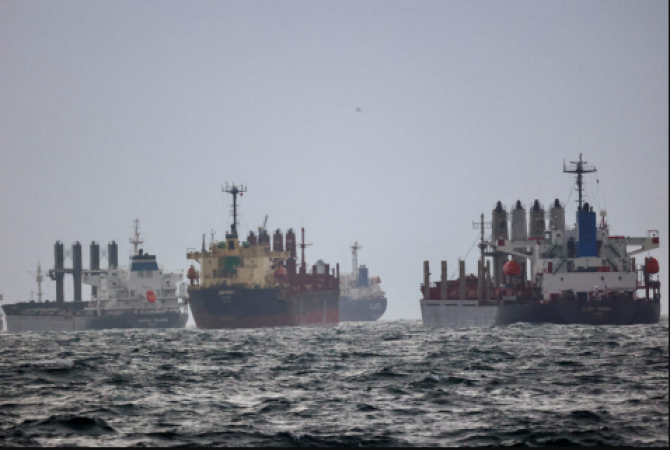
Moscow: The Black Sea "grain deal" struck last August is not succeeding as planned because grain from Ukraine is not being sent to underdeveloped nations in Africa and Asia, and the West is still preventing Russia from exporting any food or fertiliser, the Russian Foreign Ministry said on Thursday.
The agreement was negotiated by the UN and signed on July 22, 2022, in Istanbul. It created a secure passageway for ships transporting maize and wheat from Odessa to nations with a food shortage. According to a statement from the ministry, it was also planned to resume Russian grain and fertiliser exports.
Only the first portion of the agreement has been implemented eight months later, and it has done so "far from the declared humanitarian goals," according to the ministry. Ukraine has exported over 23 million tonnes of grain since August 1 of last year, of which 70% was used as animal feed.
Also Read: FDA is worried about Neuralink's battery and potential damage to brain tissue
According to Moscow, of that, 47% came from the EU and 34% from "upper-middle income countries," while only 2.6% is currently going to the nations that need food the most.
The delivery of Russian grain or fertiliser, which is desperately needed elsewhere, has been blocked for "close to zero" time. The Togliatti-Odessa ammonia pipeline is still being blocked by Kiev "for purely political reasons," according to the ministry, which has led to a shortage of 2.5 million tonnes of raw materials that could be used to make 7 million tonnes of fertiliser and feed 200 million people.
The US and its allies claim that Russian food and fertiliser are not subject to their sanctions, but in reality they have barred all Russian ships from entering their ports and from using their insurance and brokerage services, effectively imposing a total blockade on commercial shipping.
Also Read: Europe requires a separate military bloc, uninfluenced by the United States
"It's time to put the food card away. The majority of grain produced in Ukraine is exported as fodder at dumping prices to the European Union, not to the world's poorest nations, the ministry noted. "Regardless of how hard the Europeans and Americans, who are accustomed to telling lies, try to persuade everyone otherwise, Russian agricultural exports are being blatantly hampered."
For instance, the ministry noted that 262,000 tonnes of Russian fertiliser have been delayed for months in the ports of the Netherlands and the Baltic states. Moscow has provided the fertiliser to African nations for free, but only one shipment of 20,000 tonnes, bound for Malawi, has so far been successful in leaving the port.
Due to these obstacles and delays in the UN process, Russia is organising deliveries to Africa independently, the ministry added.
Moscow is thus forced to draw the conclusion that the grain agreement "does not work," blaming "sabotage by Western countries" of the Russia-UN memorandum as the primary issue.
Also Read: To train Ukrainian officers,US military is in charge of war games
The UN's efforts, which they have long and persistently tried to transform into a tool for serving their political goals, are obviously unimportant to Americans and Europeans, according to the Russian Foreign Ministry.